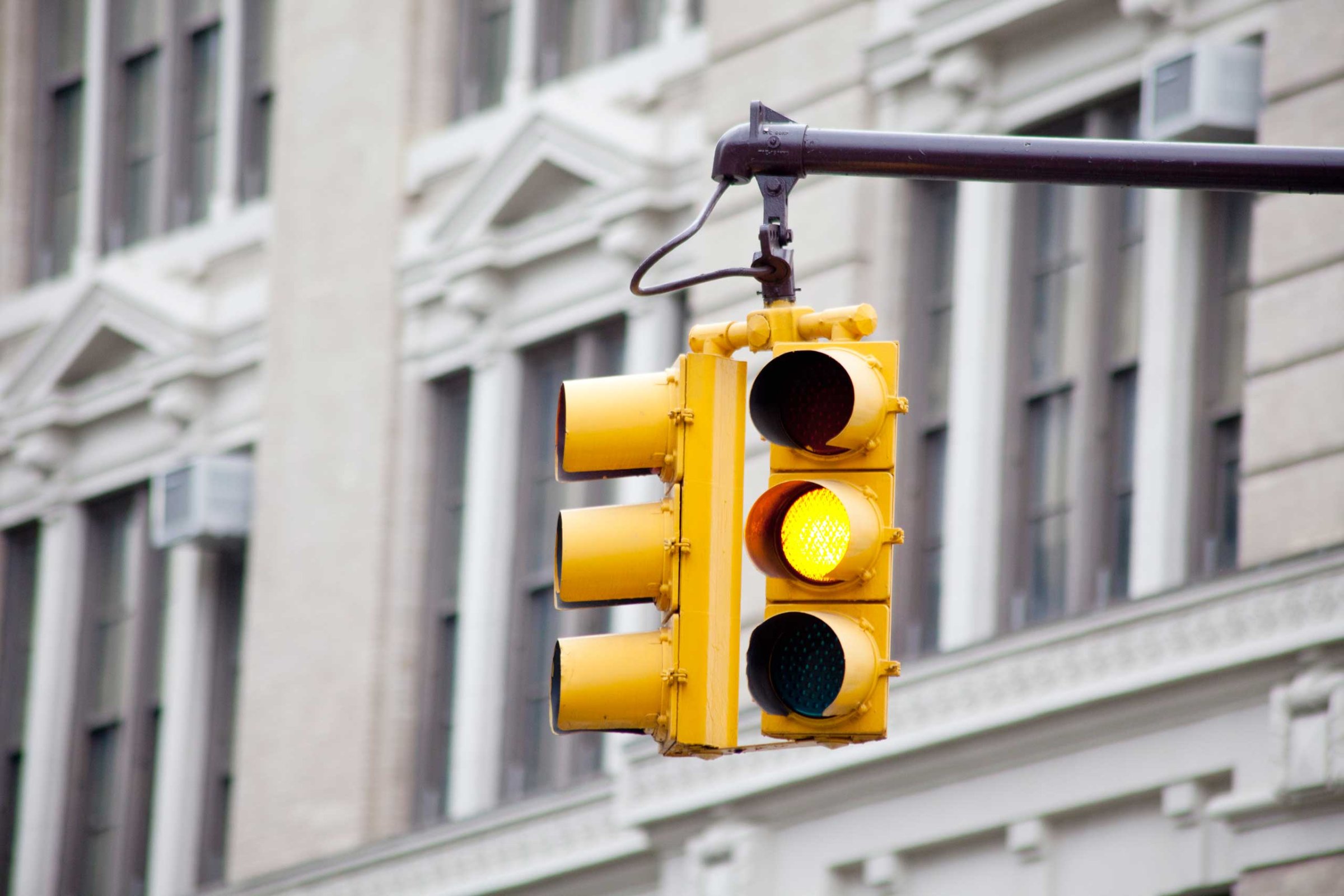
Correction appended, Oct. 15.
All yellow traffic lights are not created equal, it seems. Especially in Chicago.
Earlier this year, the city began issuing tickets to motorists who drove through yellow lights that turned red fractions of a second shorter than the three-second city minimum. The change was slight, but the effect for the cash-starved city was real: nearly $8 million from an additional 77,000 tickets, according to the city’s inspector general.
All of those $100 tickets were issued after cameras installed at intersections caught the drivers as they passed through. These systems, known as red light cameras, are an increasingly controversial tactic for policing roadways. Established in the name of public safety, critics contend the cameras have become little more than a way for municipalities to funnel money into their coffers.
“If the machine is set to catch more people and generate more revenue, then it does not really seem to be about safety but about revenue,” says Joseph Schofer, a professor of transportation at Northwestern University.
Chicago isn’t the first municipality to benefit from shorter yellow traffic lights. In 2011, the Florida Department of Transportation secretly reduced its policy on the length of yellow lights, likely bringing millions of dollars in additional revenue to the state.
There is no federal rule for how long a yellow light should be illuminated, but the U.S. Department of Transportation recommends three to six seconds. Nationwide, a minimum of three seconds is generally considered standard. John Bowman, a spokesperson for the National Motorists Association, which opposes the cameras, says the organization routinely gets calls from people saying they received a red light camera ticket, believing the yellow light was too short.
“I don’t think you’re ever going to get a public official on the record saying, ‘We shortened them to make more money,’” Bowman says. “But I think that clearly goes on.”
Red light cameras gained popularity in the 1990s after New York became the first U.S. city to install a network. The initial motivation was safety, says Hani Mahmassani, the director of the Northwestern University Transportation Center. The hope was that cameras would deter drivers from running red lights if they knew it would lead to a ticket. But in the 2000s, as the popularity of the cameras grew, cities and the companies that manufactured, installed and helped operate the cameras adopted a revenue-sharing model. The more violations caught by the cameras, the more money the city and the businesses stood to make.
“That’s when it became a greed thing,” Mahmassani says.
By the end of the decade, red light camera networks were in hundreds of municipalities. Today, 499 towns and cities have adopted them, according to the Insurance Institute for Highway Safety.
While the potential for profit is clear, the public safety value of red light cameras is fuzzy. Studies on whether red light cameras actually enhance safety are mixed. Several studies conducted by IIHS, which supports the cameras, show that crashes have not only decreased in intersections that utilize the cameras but that vehicle-related deaths have declined in those cities as well. But other research has shown that the cameras actually increase rear-end collisions because they force drivers to stop more quickly over fear that they’ll run the light and get ticketed, causing tailing motorists to smack into them.
And many of the systems have had other problems. In New Jersey, 17,000 motorists never received tickets for running a red light, while in Chicago, a former city official and the former CEO of Redflex Traffic Systems have been indicted as part of an alleged bribery scheme. There have also been reports of unexplained spikes in tickets given out by the system.
All of which has led to a growing backlash against the cameras. Red light cameras are currently banned in seven states, and others are considering outlawing them. In New Jersey, Gov. Chris Christie says it’s unlikely he’ll extend the state’s red light cameras beyond their expiration date at the end of the year. In Ohio, state lawmakers are looking at banning them by requiring speeding or red light tickets to be handed out in person by officers. And in Chicago, the city said it will no longer ticket motorists who breeze through the shorter yellow. But it’s keeping the money from the ones it already issued.
Correction: The original version of this story misstated the relationship between the length of Chicago’s yellow lights and the city’s ticketing policy. Chicago began issuing new tickets for traffic violations after the city started using a different red light camera vendor earlier this year.
More Must-Reads from TIME
- Introducing the 2024 TIME100 Next
- The Reinvention of J.D. Vance
- How to Survive Election Season Without Losing Your Mind
- Welcome to the Golden Age of Scams
- Did the Pandemic Break Our Brains?
- The Many Lives of Jack Antonoff
- 33 True Crime Documentaries That Shaped the Genre
- Why Gut Health Issues Are More Common in Women
Contact us at letters@time.com